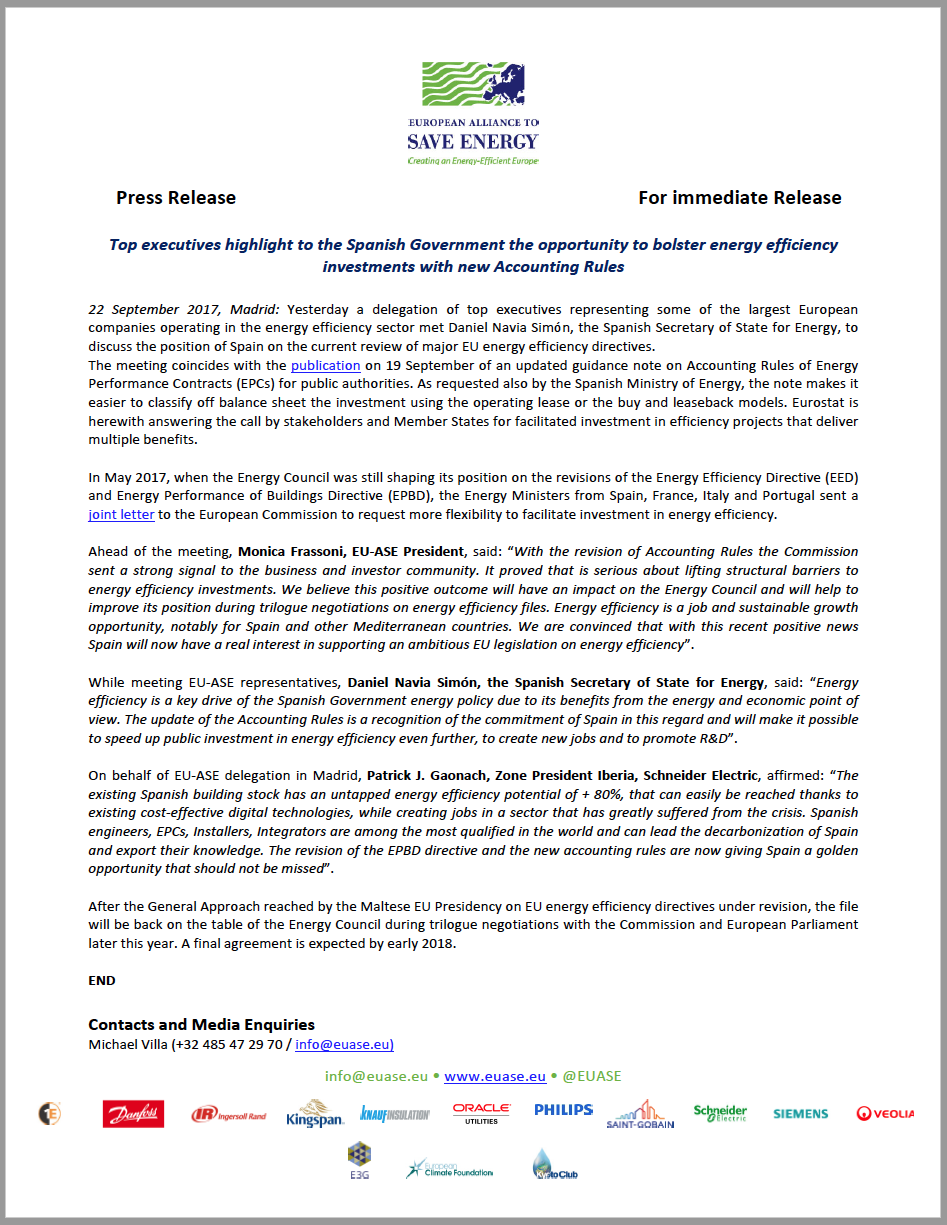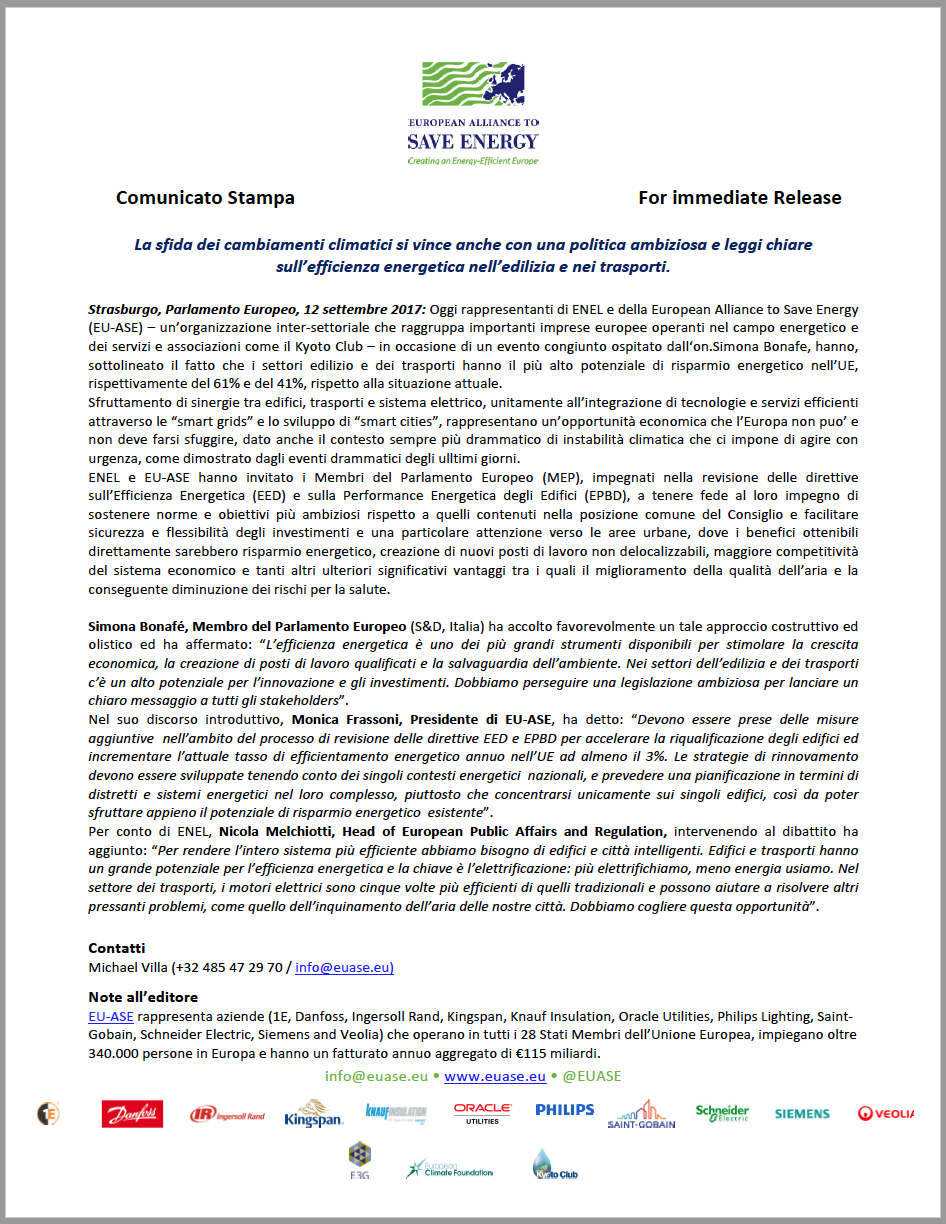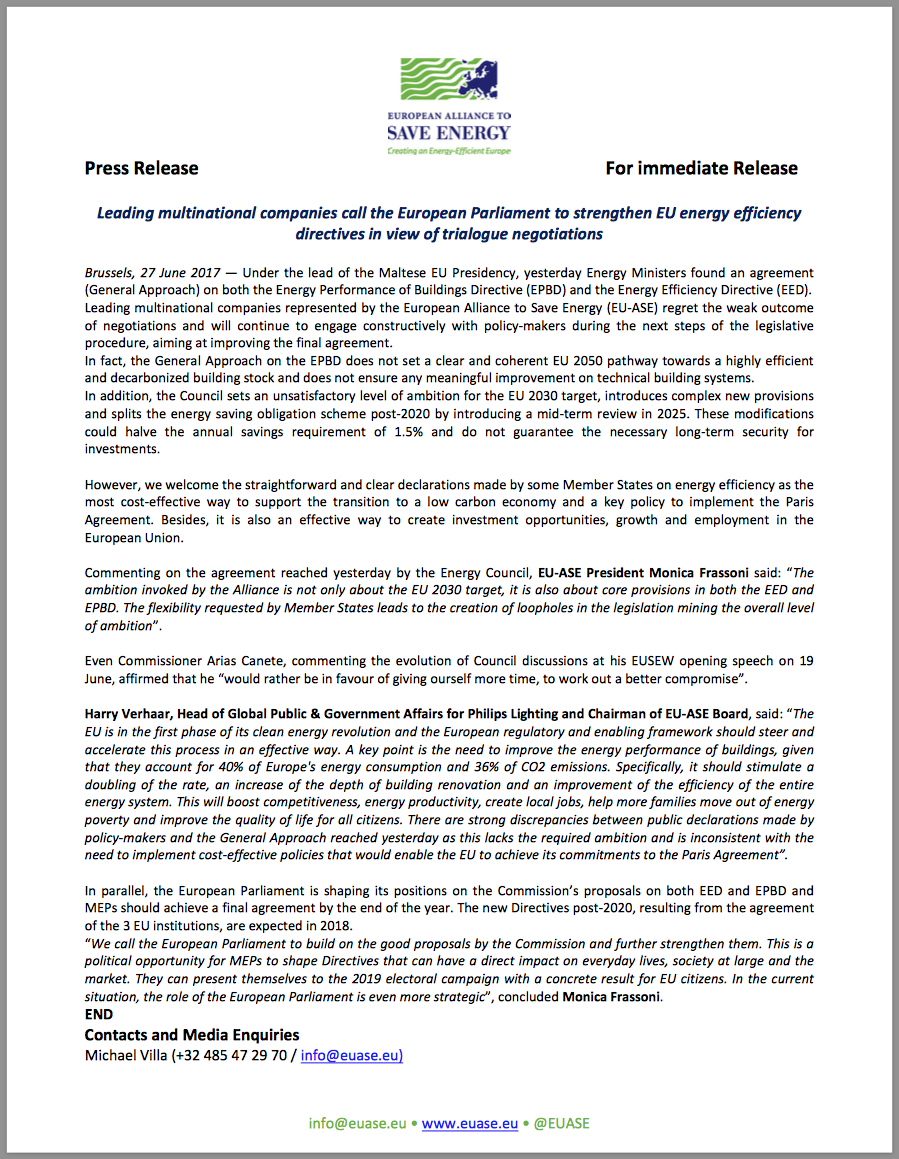Top executives highlight to the Spanish Government the opportunity to bolster energy efficiency investments with new Accounting Rules

22 September 2017, Madrid: Yesterday a delegation of top executives representing some of the largest European companies operating in the energy efficiency sector met Daniel Navia Simón, the Spanish Secretary of State for Energy, to discuss the position of Spain on the current review of major EU energy efficiency directives.
The meeting coincides with the publication on 19 September of an updated guidance note on Accounting Rules of Energy Performance Contracts (EPCs) for public authorities. As requested also by the Spanish Ministry of Energy, the note makes it easier to classify off balance sheet the investment using the operating lease or the buy and leaseback models. Eurostat is here with answering the call by stakeholders and Member States for facilitated investment in efficiency projects that deliver multiple benefits.
In May 2017, when the Energy Council was still shaping its position on the revisions of the Energy Efficiency Directive (EED) and Energy Performance of Buildings Directive (EPBD), the Energy Ministers from Spain, France, Italy and Portugal sent a joint letter to the European Commission to request more flexibility to facilitate investment in energy efficiency.
Ahead of the meeting, Monica Frassoni, EU-ASE President, said: “ With the revision of Accounting Rules the Commission sent a strong signal to the business and investor community. It proved that is serious about lifting structural barriers to energy efficiency investments. We believe this positive outcome will have an impact on the Energy Council and will help to improve its position during trilogue negotiations on energy efficiency files. Energy efficiency is a job and sustainable growth opportunity, notably for Spain and other Mediterranean countries. We are convinced that with this recent positive news Spain will now have a real interest in supporting an ambitious EU legislation on energy efficiency”.
While meeting EU-ASE representatives, Daniel Navia Simón, the Spanish Secretary of State for Energy, said: “ Energy efficiency is a key drive of the Spanish Government energy policy due to its benefits from the energy and economic point of view. The update of the Accounting Rules is a recognition of the commitment of Spain in this regard and will make it possible to speed up public investment in energy efficiency even further, to create new jobs and to promote R&D”.
On behalf of EU-ASE delegation in Madrid, Patrick J. Gaonach, Zone President Iberia, Schneider Electric, affirmed: “ The existing Spanish building stock has an untapped energy efficiency potential of + 80%, that can easily be reached thanks to existing cost-effective digital technologies, while creating jobs in a sector that has greatly suffered from the crisis. Spanish engineers, EPCs, Installers, Integrators are among the most qualified in the world and can lead the decarbonization of Spain and export their knowledge. The revision of the EPBD directive and the new accounting rules are now giving Spain a golden opportunity that should not be missed”.
After the General Approach reached by the Maltese EU Presidency on EU energy efficiency directives under revision, the file will be back on the table of the Energy Council during trilogue negotiations with the Commission and European Parliament later this year.
A final agreement is expected by early 2018.



